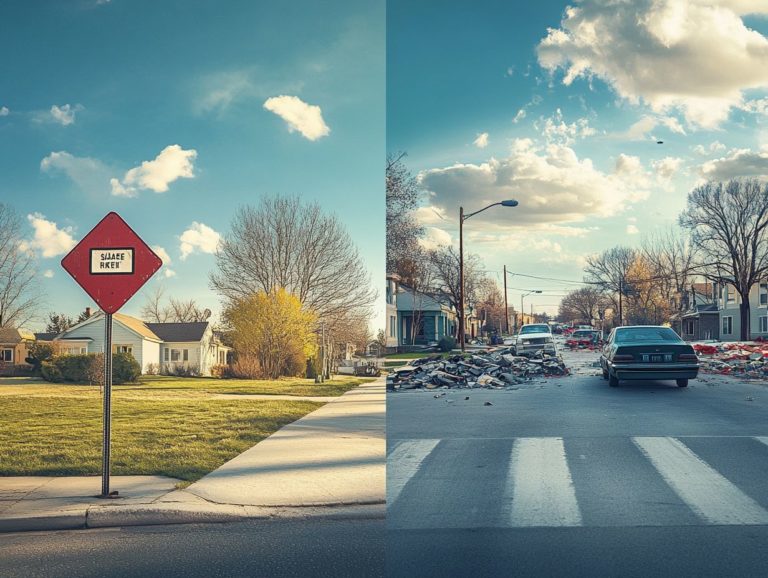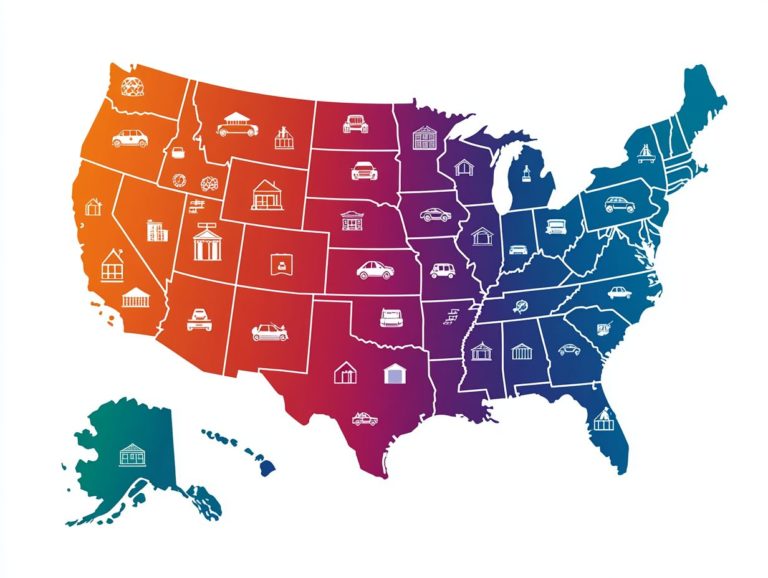Understanding Personal Injury Protection Coverage
Personal Injury Protection (PIP) coverage is an essential aspect of auto insurance. It offers you both peace of mind and financial support after an accident.
This coverage includes various benefits, addressing expenses for those affected by accidents.
However, be aware of its limitations and how to acquire it. Alternatives may also be available to you.
Discover how PIP can protect your interests and gain a comprehensive understanding of your options, ensuring you remain safeguarded while navigating the road ahead.
Contents
- Key Takeaways:
- Understanding Personal Injury Protection Coverage
- Benefits of PIP Coverage
- Types of Expenses Covered
- Advantages for Accident Victims
- Limitations of PIP Coverage
- Exclusions and Restrictions
- How to Obtain PIP Coverage
- Alternatives to PIP Coverage
- Frequently Asked Questions
- What is personal injury protection coverage?
- Do I need personal injury protection coverage?
- What does personal injury protection coverage typically cover?
- Is personal injury protection coverage the same as health insurance?
- How much personal injury protection coverage do I need?
- Can personal injury protection coverage be used for non-accident related injuries?
Key Takeaways:
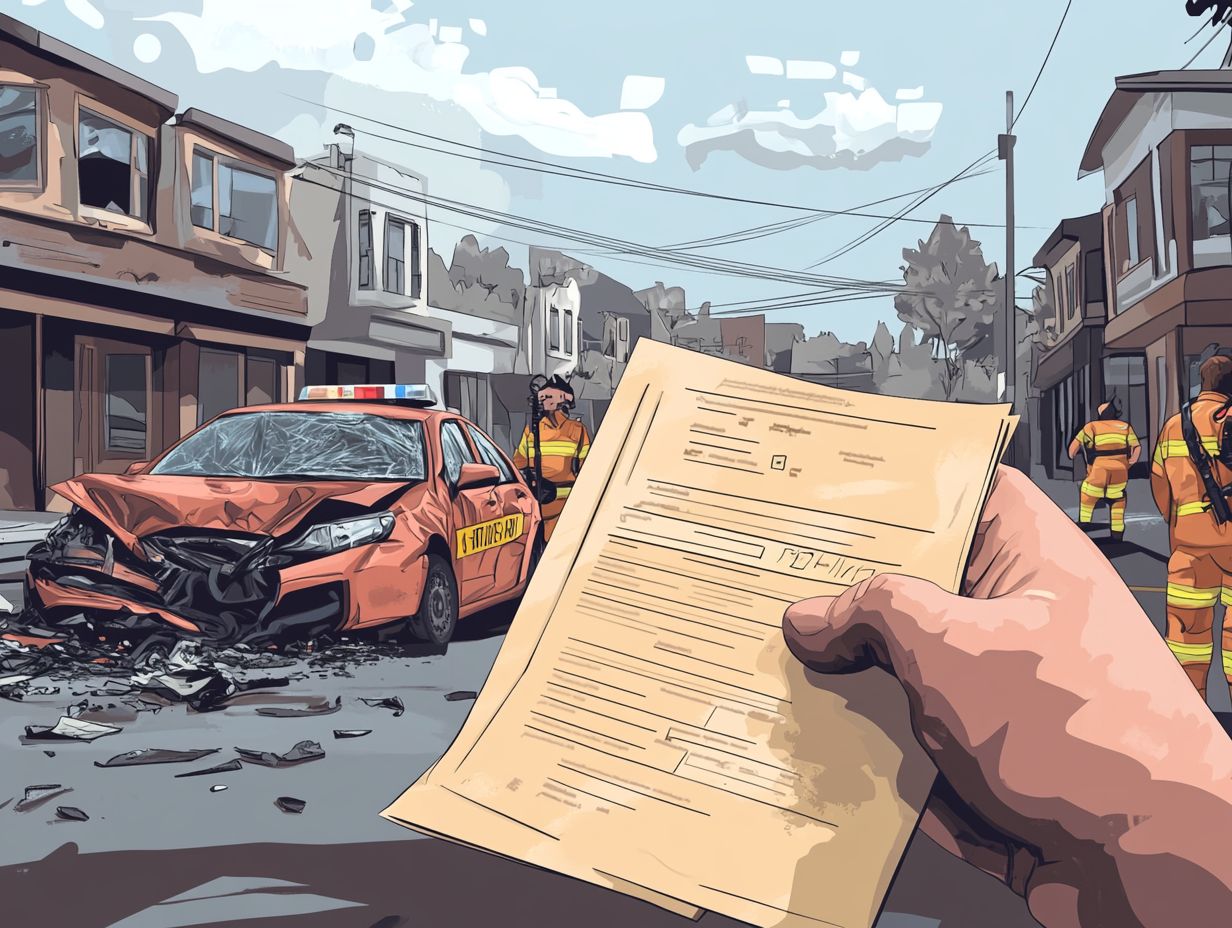
- Personal Injury Protection (PIP) is a type of auto insurance that covers medical expenses and lost wages for policyholders and passengers involved in an accident.
- PIP coverage provides benefits such as medical bills, lost income, and funeral expenses, making it an important addition to your auto insurance policy.
- Carefully review the limitations and exclusions of PIP coverage and consider alternative options, such as underinsured/uninsured motorist coverage or medical payments coverage.
Understanding Personal Injury Protection Coverage
Personal Injury Protection (PIP) coverage acts as crucial no-fault insurance. This means it provides financial support in an automobile accident, regardless of who s to blame. This type of coverage is essential in states that mandate it, offering a safety net that includes medical expenses, lost wages, and rehabilitation costs.
With PIP, you can receive immediate care without navigating complex claims processes. States like Florida, New Jersey, and Massachusetts have specific requirements outlining the extent of PIP coverage. It s vital for you to understand your insurance policy and state regulations to ensure comprehensive protection against injuries from accidents.
Explanation of PIP Coverage
Personal Injury Protection (PIP) provides direct compensation for expenses stemming from accident-related injuries. This ensures you receive prompt medical care without the usual delays tied to traditional insurance claims.
This insurance takes care of essential medical expenses, such as hospital bills and rehabilitation costs, and it extends to cover funeral expenses in unfortunate situations. PIP can even compensate for lost income if you re unable to work after an accident, offering invaluable financial support during your recovery.
Since insurance regulations vary widely from state to state, grasp your specific requirements and benefits. Understanding these factors empowers you to make better-informed decisions about your coverage, ensuring you are well-protected in the event of an unforeseen mishap.
Benefits of PIP Coverage
The benefits of Personal Injury Protection (PIP) coverage extend beyond immediate financial relief. They provide a robust support system for accident victims, ensuring that medical payments, rehabilitation costs, and lost wages are handled promptly without the added stress of determining fault.
Have you reviewed your PIP coverage lately? Consulting with an insurance agent can help you understand your options and ensure you have the right protection in place.
Types of Expenses Covered
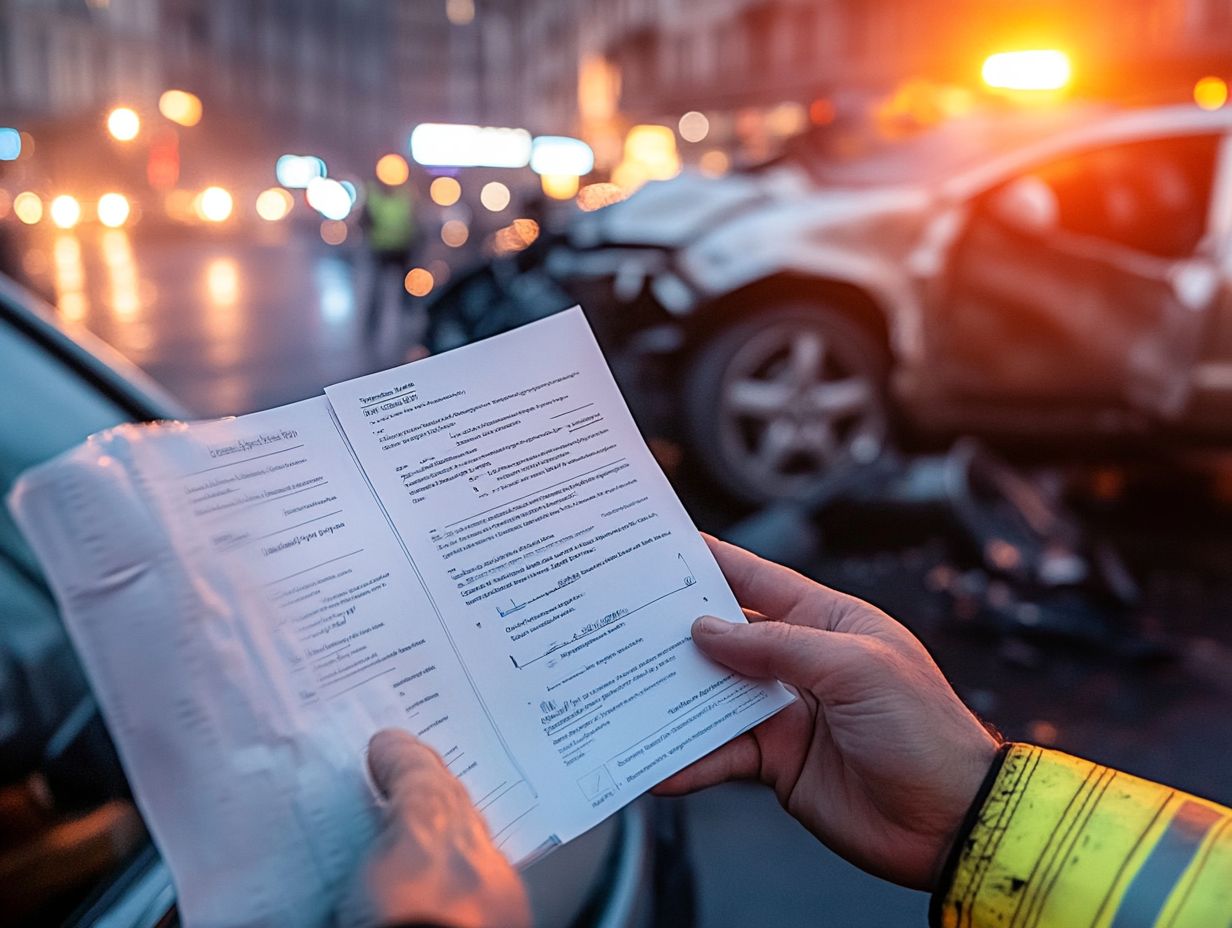
PIP coverage helps with various expenses you might face after an accident. This includes medical costs for treatment, rehabilitation costs to help you get better, and even funeral expenses in the most tragic situations. It also covers compensation for lost income due to your inability to work.
This coverage is designed to support you during some of the most challenging times. Your medical expenses will cover hospital bills, doctor visits, and medication costs, allowing you to receive prompt care without the worry of financial strain.
Rehabilitation costs, which include physical and occupational therapy, are vital for helping you regain your strength and return to daily life.
In unfortunate situations where funeral costs arise, PIP offers financial relief so your family can focus on healing rather than grappling with financial burdens. Lost income benefits provide a crucial safety net, ensuring you and your family can maintain stability during your recovery period.
Advantages for Accident Victims
For accident victims, PIP coverage serves as a vital financial lifeline, easing the immediate strain of medical bills and lost wages. This allows you to concentrate on your recovery rather than being weighed down by financial stress.
This insurance is essential because it has a no-fault approach, enabling you to access medical treatment and compensation quickly without enduring the often protracted processes tied to traditional liability claims. By ensuring you receive necessary medical care promptly, PIP coverage plays a crucial role in preventing the escalation of injuries.
You can feel secure knowing financial help is here when you need it! This proactive safety net not only facilitates a faster recovery but also gives you the power to reclaim a sense of normalcy, free from the anxiety of unpaid bills accumulating during your healing journey.
Limitations of PIP Coverage
While Personal Injury Protection (PIP) coverage provides a range of valuable benefits, it also has its limitations. These may include exclusions and restrictions that could affect the financial support you receive after an accident.
It s crucial to understand these limitations, as they can greatly affect the overall effectiveness of your policy.
Exclusions and Restrictions
PIP coverage often comes with specific exclusions and restrictions that you should review meticulously to avoid gaps in your financial protection after an automobile accident.
Many plans may exclude coverage for certain types of injuries, especially those sustained while driving a vehicle not listed in the policy. Restrictions could apply to specific medical procedures or treatments deemed unnecessary, leaving you exposed to out-of-pocket expenses.
Some policies might impose caps on the amount payable for lost wages or medical expenses, complicating your decision-making process. Therefore, evaluating these factors is crucial to ensure you select the most suitable plan that meets your unique needs and provides comprehensive financial protection after an accident.
How to Obtain PIP Coverage
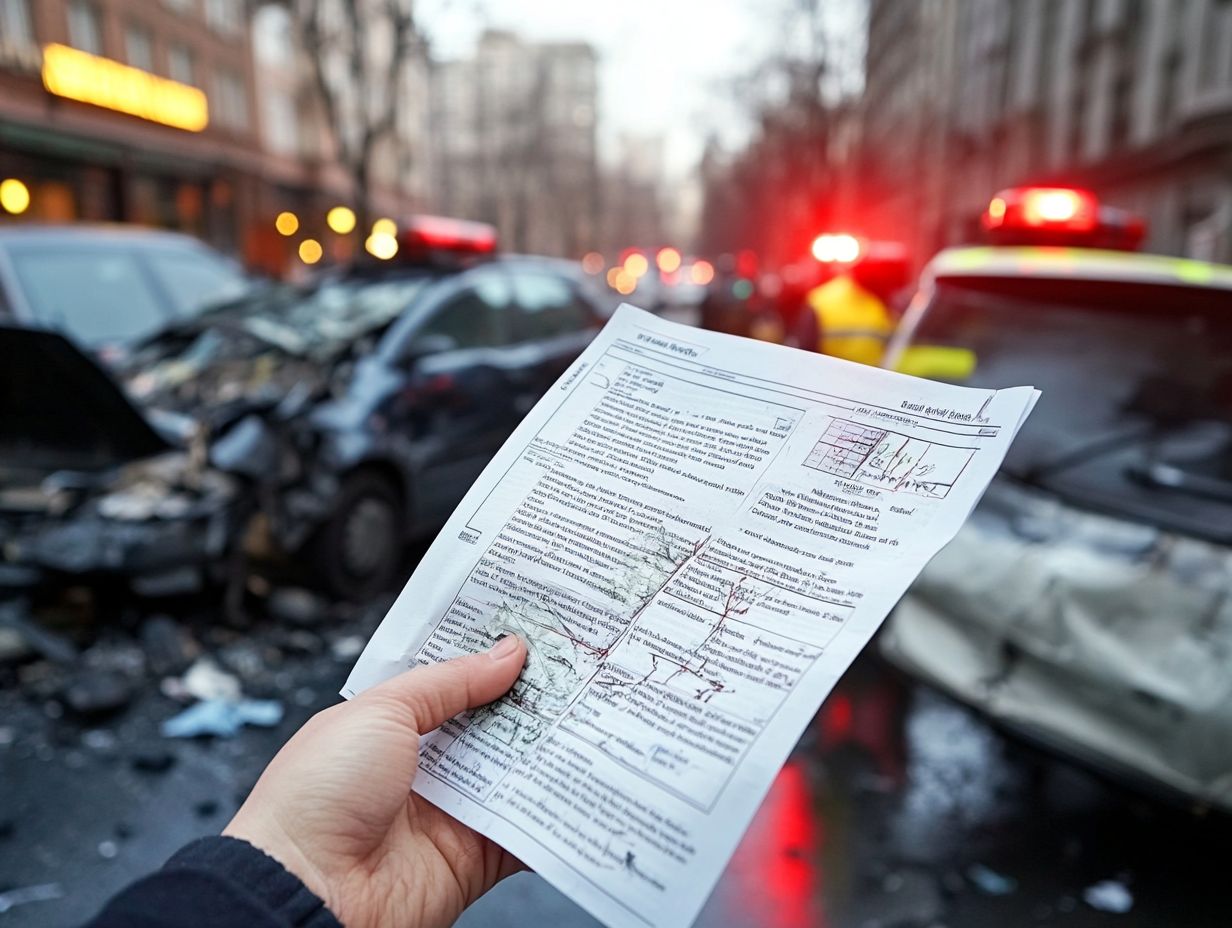
Navigating the realm of Personal Injury Protection (PIP) coverage requires your attention to the various insurance requirements established by state governments. As a policyholder, it s essential to collaborate closely with insurance companies to choose coverage options tailored to your unique needs.
Options for Obtaining PIP Coverage
When you’re seeking PIP coverage, you have several options to consider, including choosing the level of coverage that not only meets state requirements but also aligns with your insurance needs.
This process typically involves evaluating a variety of insurance policies from different providers to find the most suitable option for you. It s essential to compare factors like premium rates, deductibles (the amounts you pay out of pocket before your insurance kicks in), and the specifics of the benefits each policy offers.
Some insurers may offer more comprehensive plans that cover medical expenses and lost wages, while others might provide more basic coverage. Thoroughly assessing these elements helps you make informed choices that comply with local regulations and provide the financial protection and peace of mind you seek.
Alternatives to PIP Coverage
If you’re exploring alternatives to Personal Injury Protection (PIP) coverage, consider options like traditional auto insurance policies, medical payments coverage, and health insurance. Each of these can offer distinct forms of financial support should you find yourself involved in an accident.
Other Types of Auto Insurance Coverage
Medical payments coverage and broader health insurance plans can serve as viable alternatives or complements to PIP coverage. They provide essential support when you need it most.
For instance, medical payments coverage takes care of the medical expenses for you and your passengers, no matter who s at fault, which can significantly alleviate the financial strain following an accident. Gap insurance is another safety net; it protects you if your vehicle is totaled and you owe more on your loan than the car’s current value. Collision coverage covers damages from accidents, while comprehensive coverage is for non-collision incidents like theft or natural disasters.
By understanding these various options, you ll be empowered to tailor your insurance policy to align perfectly with your unique needs, ensuring you have peace of mind as you navigate the road ahead.
Frequently Asked Questions
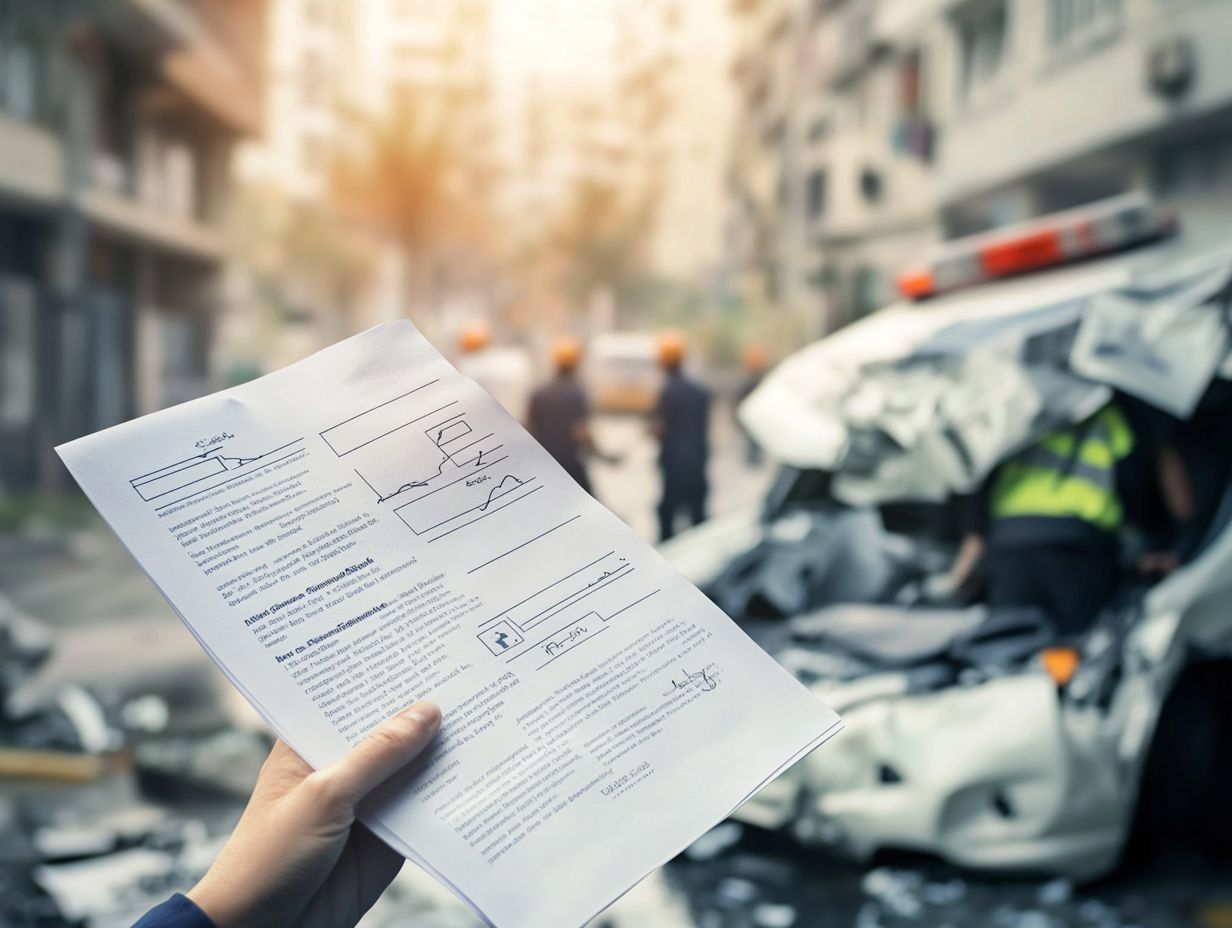
What is personal injury protection coverage?
Personal injury protection coverage, also known as PIP coverage, is a type of insurance that helps cover medical expenses and lost wages in case of injuries sustained in a car accident.
Do I need personal injury protection coverage?
It depends on the state you live in. Some states require drivers to have PIP coverage, while others offer it as an optional add-on to their car insurance policy.
What does personal injury protection coverage typically cover?
PIP coverage typically covers medical expenses, lost wages, and other expenses related to injuries sustained in a car accident, regardless of who was at fault.
Is personal injury protection coverage the same as health insurance?
No, PIP coverage is not the same as health insurance. PIP coverage only covers injuries sustained in a car accident, while health insurance covers a wider range of medical expenses.
How much personal injury protection coverage do I need?
The amount of PIP coverage you need depends on your personal circumstances. It’s best to consult with your insurance provider to determine the appropriate amount of coverage for your specific needs.
No, PIP coverage can only be used for injuries sustained in a car accident. For other types of injuries, you would need to rely on your health insurance coverage.


